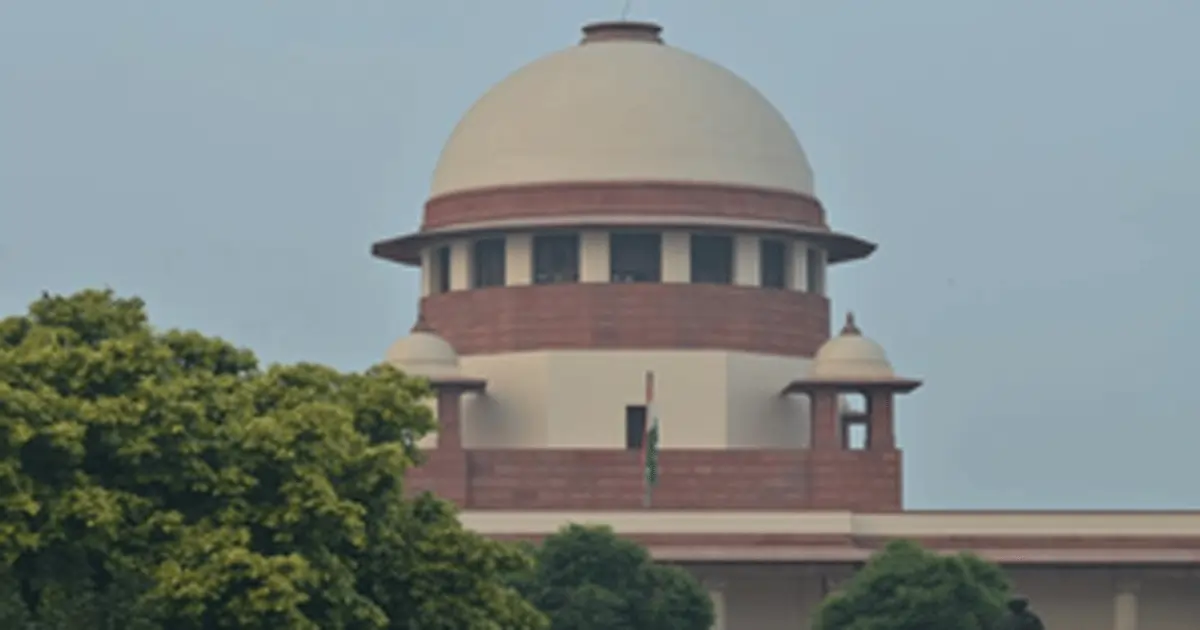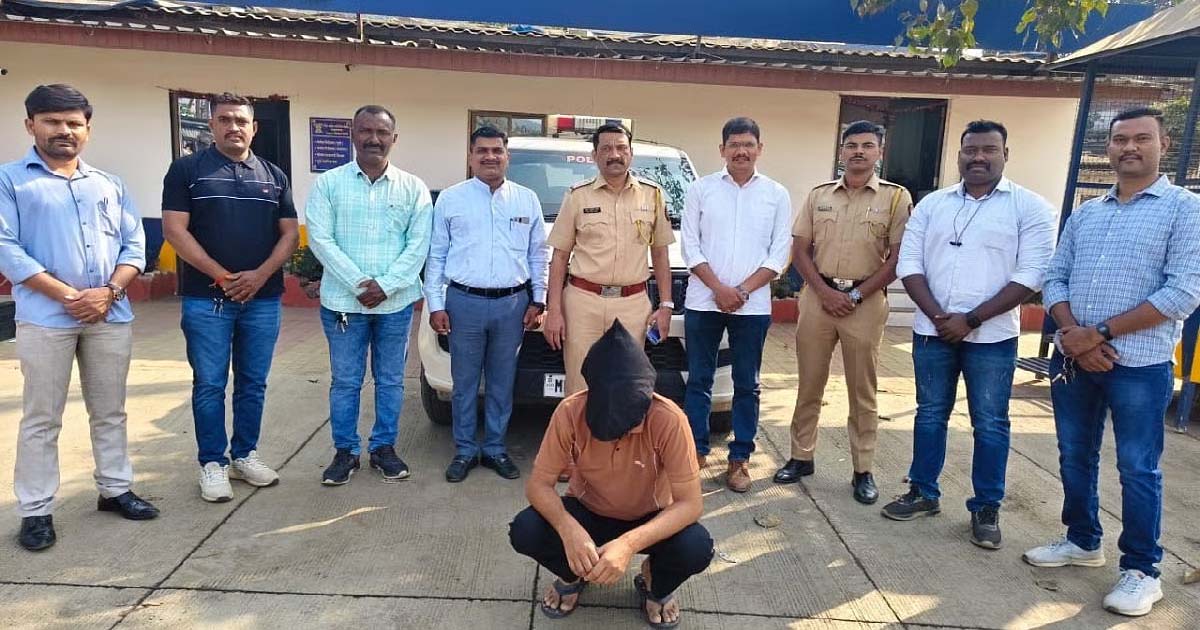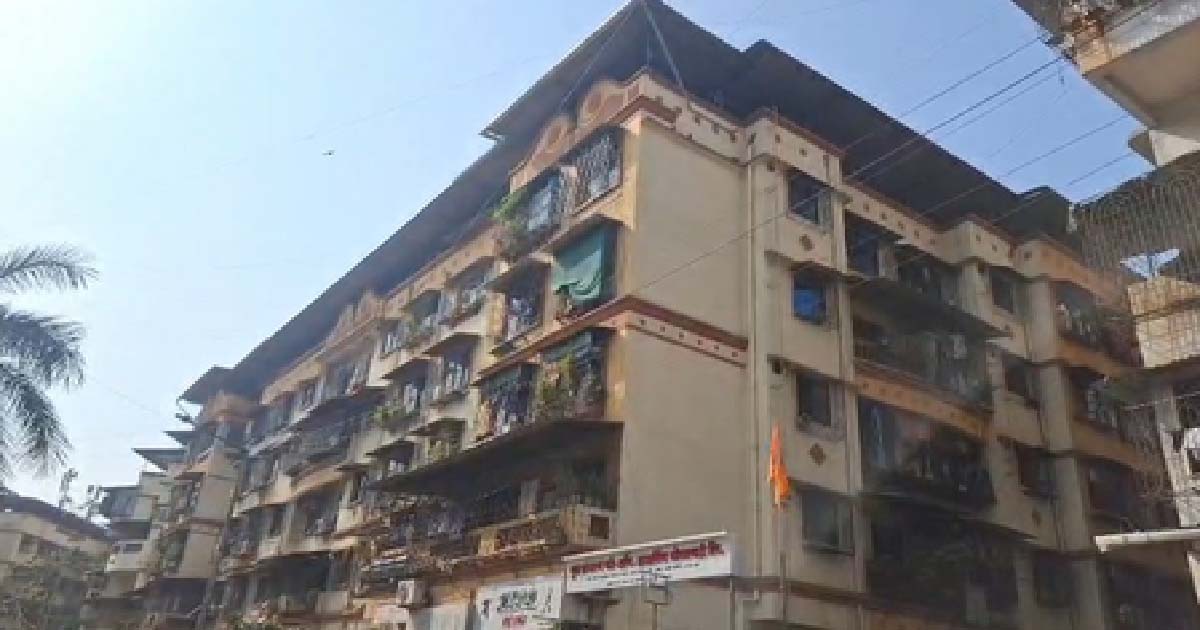Crime
SC closes PIL against alarming rise in lynchings, mob violence

New Delhi, Feb 11: The Supreme Court on Tuesday disposed of a PIL seeking directions to DGPs of states to take immediate action in lynching and mob violence cases in accordance with the directions of the apex court and added that the directions in the Tehseen Poonawalla vs. Union of India case were binding on all authorities across India.
A Bench of Justices B.R. Gavai and K.Vinod Chandran opined that sitting in the national Capital, it cannot monitor incidents in different areas of different states across the country.
“Sitting in Delhi, we cannot monitor incidents in different areas of the country and in our view such micromanagement would not be feasible,” said the Justice Gavai-led Bench.
It added that the directions laid down by the top court in the case of Tehseen Poonawalla vs. Union of India, are binding on all authorities across the country under Article 141 of the Constitution.
In its 2018 judgment in the Poonawalla case, the Supreme Court had directed designation of nodal officer in each district for taking measures to prevent incidents of mob violence and lynching.
“The Director General of Police/the Secretary, Home Department of the concerned states shall take regular review meetings (at least once a quarter) with all the Nodal Officers and State Police Intelligence heads,” it had ordered.
In its order, the Justice Gavai-led Bench stated that an aggrieved person can always seek remedy in accordance with the law, clarifying that the apex court cannot lay down any uniform criteria for the grant of compensation to the victims of mob lynching incidents since the quantum of compensation ought to be decided on a case to case basis.
Further, the apex court refused to examine the validity of cow protection laws introduced in several states, suggesting the litigants to approach the jurisdictional High Court.
“It will be appropriate that persons who are aggrieved approach jurisdictional High Courts to challenge the vires of the legislations/notifications,” the SC said.
During the course of hearing, Solicitor General (SG) Tushar Mehta, the second-highest law officer of the Centre, submitted that mob lynching is a distinct offence under the Bharatiya Nyaya Sanhita (BNS) and if there is any violation, the law will take its own course.
In an earlier hearing, the top court had pulled up the state governments of Assam, Chhattisgarh, Telangana, Maharashtra, and Bihar for not filing their counter-affidavits.
“We clarify that in the event counter affidavits are not filed by the above-mentioned states, the Chief Secretaries of the said states shall remain personally present in the court on the next date of hearing to show cause as to why an action should not be taken against them for non-compliance of the orders of the court,” it had said in an order passed on November 5, 2024.
Earlier in April last year, the apex court had granted six weeks to various state governments to file their reply detailing the action taken in cases of lynchings and mob violence.
“It was expected of the state governments to at least respond and give details as to what action has been taken in respect of the said instances (of lynchings and mob violence). We, therefore, grant six weeks’ time to all the state governments – who have not yet filed their affidavits – to file their counter-reply and give an explanation as to what action has been taken by the states in respect of incidents mentioned in the writ petition or interlocutory applications,” the SC had said.
In July 2023, the Supreme Court issued notice to the Centre and the Haryana, Madhya Pradesh, Bihar, Rajasthan, Odisha, and Maharashtra governments. Later, all state governments were added as parties in the PIL on an application moved by Islamic clerics’ organisation Jamiat Ulama-i-Hind. The plea prayed for a minimum uniform compensation to be determined by the court that should be granted to the victims or their families in addition to the amount determined by the authorities.
“In most cases, minimal action of merely registering FIRs is the only thing that is done by the authorities which seems to be more of a formality than any genuine initiation of the criminal machinery,” the plea said.
Crime
Palghar Crime: Pelhar Police Seize Banned Gutkha Worth ₹6.39 Lakh, Shopkeeper Arrested In Nalasopara

Palghar, Maharashtra, Dec 27: In a significant crackdown on the sale of banned tobacco products, the Pelhar Police arrested a shopkeeper for illegally stocking and selling gutkha, seizing contraband worth ₹6.39 lakh.
According to police, the action was carried out on December 25, 2025, during a routine patrol by Assistant Police Inspector Ramesh Waghchaure along with his team.
Acting on specific and reliable information, the police raided Sana General Stores located at Khan Chowk, Nalasopara Station Road, Nalasopara East, Vasai.
During the raid, the shop owner was found in possession of Maharashtra government-banned tobacco products (gutkha), allegedly kept for sale. The accused has been identified as Javed Ahmed Zaheer Ahmed Ansari (38), a resident of Nalasopara East.
Upon searching the shop premises, police recovered banned gutkha products valued at ₹6,39,493. Following the seizure, Pelhar Police registered a case against the accused, invoking Section 123 of the Bharatiya Nyaya Sanhita along with relevant provisions of the Food Safety and Standards Act, 2006 (Sections 26(2)(i), 26(3), and 26(4)).
Further investigation in the case is being carried out by Waghchaure. Police officials stated that such drives against banned substances will continue to protect public health and ensure strict enforcement of the law.
Crime
Mother strangles 6-year-old to death in Navi Mumbai for not speaking Marathi

Navi Mumbai, Dec 27: In a shocking and disturbing incident from Navi Mumbai, a woman allegedly murdered her six-year-old daughter because the child could not speak Marathi, sending shockwaves across the city.
The police have arrested the mother in connection with the case after attempts were made to pass off the child’s death as a heart attack.
The incident came to light after the police grew suspicious of the circumstances surrounding the child’s death and ordered a post-mortem examination, which revealed that the girl had died due to asphyxiation.
Following intensive questioning, the truth behind the incident was uncovered.
The heart-wrenching crime was reported from the Kalamboli suburb of Navi Mumbai. In Gurusankalp Housing Society in Sector-1, Kalamboli, the 30-year-old woman allegedly strangled her own six-year-old daughter to death.
The Kalamboli police have arrested the woman and initiated further investigation into the matter.
According to information provided by the police, the family consisted of an IT engineer husband and his wife, who holds a B.Sc. degree. The couple got married in 2017 and welcomed their daughter in 2019.
However, from a very young age, the child reportedly had difficulty speaking and mostly communicated in Hindi instead of Marathi.
This reportedly became a recurring source of anger for the mother. During the investigation, it emerged that she often expressed resentment about the child’s speech, repeatedly telling her husband, “I don’t want such a child; she doesn’t speak properly.”
The husband, police said, had tried to reason with her on several occasions.
On the night of December 23, the woman allegedly decided to kill the child. Coincidentally, the grandmother had visited the house that day, but could not meet the girl.
Later, when the husband returned home and found the child unresponsive, the family rushed her to the hospital.
At the hospital, an initial claim was made that the child had suffered a heart attack. However, Senior Police Inspector Rajendra Kote of Kalamboli Police Station found the circumstances surrounding the death suspicious and ordered a post-mortem examination.
The preliminary medical report indicated obstruction of the airway, pointing towards asphyxiation.
Following this revelation, the police subjected the parents to sustained questioning. After nearly six hours of interrogation, the mother allegedly confessed to strangling her daughter.
She has since been arrested in connection with the crime.
It has also come to light during the investigation that the woman was undergoing treatment with a psychiatrist.
The police are continuing their probe to ascertain all aspects related to the case and the mental condition of the accused.
Crime
मुंबई के पायधोनी में करोड़ों रुपये के ड्रग्स के साथ 9 आरोपी गिरफ्तार, इनमें 3 महिला तस्कर भी शामिल

मुंबई : ड्रग्स के खिलाफ एक बड़े ऑपरेशन में, पायधोनी पुलिस ने 1 करोड़ रुपये से ज़्यादा की हेरोइन ज़ब्त करने और दो पुरुष और दो महिला ड्रग पेडलर को गिरफ्तार करने का दावा किया है। जानकारी के मुताबिक, 16 दिसंबर को दोपहर 2:30 बजे पायधोनी पुलिस स्टेशन की सीमा में पी.डी.मेलो रोड पर एक सर्च के दौरान, 37 साल के राम नटवर ठक्कर और 27 साल के वसीम सैयद के पास से 326 ग्राम से ज़्यादा हेरोइन बरामद की गई। आरोपियों को गिरफ्तार कर लिया गया और उन पर एनडीपीएस एक्ट के तहत मामला दर्ज किया गया। जांच के दौरान, आरोपियों ने बताया कि वे ड्रग्स कहां से लाए थे। उसके बाद, पुलिस ने 30 साल की रुबीना सैयद को गिरफ्तार किया। उसने बताया कि वह शबनम शेख के संपर्क में थी। उसे राजस्थान के अजमेर से गिरफ्तार किया गया। जब यह पता लगाने के लिए जांच की गई कि इन दोनों महिलाओं ने ड्रग्स कहां से हासिल किए थे, तो शबनम शेख को ड्रग्स बेचने वाले व्यक्ति, मुस्कान समीउल्लाह शेख 19 साल को मस्जिद बंदर इलाके से गिरफ्तार किया गया। पुलिस को जानकारी मिली थी कि अब्दुल कादिर शेख और मेहरबान अली मुस्कान को ड्रग्स सप्लाई करने आ रहे हैं, जिस पर पुलिस ने जाल बिछाकर अब्दुल कादिर को गिरफ्तार कर लिया। उसके पास से ड्रग्स भी बरामद हुए। जोगेश्वरी में उसके घर की तलाशी के दौरान नवजीत गुलाबी खान, शारिक सलमानी, समद गुलाबी के पास हेरोइन मिली। उनके पास से कुल 33 करोड़ से ज़्यादा कीमत के ड्रग्स ज़ब्त किए गए। इस ऑपरेशन में पुलिस ने तीन महिलाओं और 6 पुरुषों को गिरफ्तार किया और करोड़ों रुपये के ड्रग्स ज़ब्त किए। यह ऑपरेशन मुंबई पुलिस कमिश्नर देविन भारती के निर्देश पर डीसीपी विजय सागरे ने किया।
-

 Crime3 years ago
Crime3 years agoClass 10 student jumps to death in Jaipur
-

 Maharashtra1 year ago
Maharashtra1 year agoMumbai Local Train Update: Central Railway’s New Timetable Comes Into Effect; Check Full List Of Revised Timings & Stations
-

 Maharashtra1 year ago
Maharashtra1 year agoMumbai To Go Toll-Free Tonight! Maharashtra Govt Announces Complete Toll Waiver For Light Motor Vehicles At All 5 Entry Points Of City
-

 Maharashtra1 year ago
Maharashtra1 year agoFalse photo of Imtiaz Jaleel’s rally, exposing the fooling conspiracy
-

 National News1 year ago
National News1 year agoMinistry of Railways rolls out Special Drive 4.0 with focus on digitisation, cleanliness, inclusiveness and grievance redressal
-

 Maharashtra1 year ago
Maharashtra1 year agoMaharashtra Elections 2024: Mumbai Metro & BEST Services Extended Till Midnight On Voting Day
-

 National News1 year ago
National News1 year agoJ&K: 4 Jawans Killed, 28 Injured After Bus Carrying BSF Personnel For Poll Duty Falls Into Gorge In Budgam; Terrifying Visuals Surface
-

 Crime1 year ago
Crime1 year agoBaba Siddique Murder: Mumbai Police Unable To Get Lawrence Bishnoi Custody Due To Home Ministry Order, Says Report












